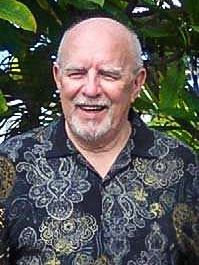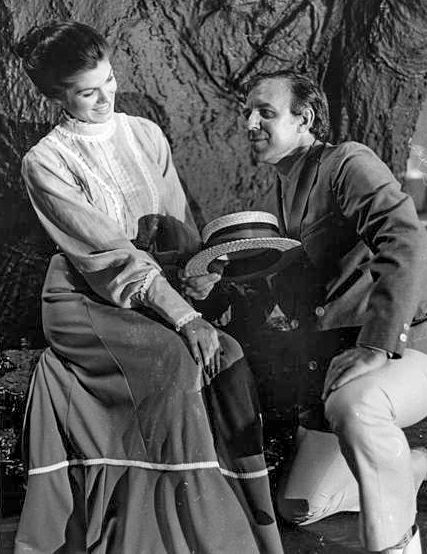Crane Remembered for Work at Croswell, Siena
Glenn Crane Remembered for Work at Croswell, Siena
Editor’s Note: This edited article is reprinted with permission by the Adrian Daily Telegram.
By Arlene Bachanov—Daily Telegram Special Writer.

A man devoted to the history of theater, a dynamic teacher who made sure his students and those he directed onstage paid attention to the details, and a person who was constantly teaching, both in and out of the classroom.
Those are only some of the ways Glenn Crane’s former students and theatrical colleagues have described him in the days since his Sept. 1 death in Florida, where he and his wife, Alice, were living in retirement.
Crane was part and parcel of Lenawee County’s theatrical community for years as a professor of theater at what is now Siena Heights University and at the Croswell Opera House.
One of the countless theater people whose lives Crane touched over his years in Adrian was Mark DiPietro, who today is the chairman of SHU’s Division of Visual and Performing Arts as well as a longtime Croswell actor and director.
“In 1975, I’d never heard of Adrian,” said DiPietro, who grew up in Livonia. But then he came to the Croswell’s production of “The Music Man,” in which Crane played Professor Harold Hill.

“I thought he was great,” DiPietro said. And, when DiPietro enrolled in Siena Heights’ theater program a few years later, Crane became his adviser and mentor in addition to directing him in both SHU and Croswell productions.
“He taught me the patience of being an actor,” DiPietro said. “I learned that (acting) doesn’t come easy, that you’ve got to work hard.”
“He always was a strong advocate of doing the very best you can do in every aspect of theater,” said Doug Miller, also a professor of theater at SHU who was a student of Crane’s before eventually joining the theater faculty himself and becoming Crane’s colleague. Crane’s philosophy, Miller said, was to always “shoot for the highest and don’t accept the average.”
“He was dynamic; energizing; exciting to work with; very, very intelligent; creative; hard-working,” Miller continued. “He inspired a lot of students, and he pushed a lot of them, including me. …He was a great man.”
“He was a fine actor and a wonderful director, just brilliant,” said Trudy McSorley, who for many years was part of SHU’s theater faculty. “And he loved the Croswell.”
To McSorley, Crane and another legendary member of the SHU theater faculty, Sister Therese Craig, made a unique contribution to the lives of their students and, therefore to Siena Heights overall. “Glenn was a scholar. … He and Therese had a passion for making sure theater history was taught in their classes,” she said. “That was huge, because it set us apart as a small, Catholic college doing theater—students were prepared really well to go on to graduate school.”
Like her colleagues, McSorley remembers Crane as someone to whom “the little things” of doing theater were important—“what an actor does as part of his character. And because he was such a scholar of theater, he knew what was appropriate for that character. And it was always in an understated way, never over the top, because that way you make audiences dig a little deeper, think a little more.”
And, McSorley said, her former colleague was one of those people who always had something to teach others. “He was always a teacher,” she said. “Whether he was directing a show, or in the classroom, he was always teaching.”
